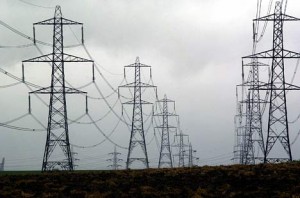President Goodluck Jonathan has said that Nigerians will witness unprecedented growth in electricity supply in the country, even as his administration invests $1.5 billion for the upgrade of electricity transmission in the country.
The President made the remarks in his New Year message to Nigerians. He said, “In 2014, we will continue to prioritize investments in key sectors such as infrastructure development, power, roads, rail transportation and aviation. In the past year, the Federal Government completed the privatization of four power generation companies and 10 power distribution companies. We are also in the process of privatizing 10 power plants under the National Integrated Power Projects (NIPP).
We shall boost investments in transmission to ensure power generated is properly evacuated and distributed. In this regard, we have already mobilized an additional $1.5 billion for the upgrade of the transmission network in 2014 and beyond. Government will also strengthen regulation of the sector, and closely monitor electricity delivery to increase this beyond 18 hours per day. We will complete the privatization of the NIPP projects, accelerate work on our gas pipeline infrastructure and also continue to invest in hydro-electric power and clean energy as we monitor the effects of climate change on our economy.”
Speaking on the milestones of his administration, President Jonathan listed improvements in education, agriculture and manufacturing.
He said, “I am pleased to note that as a result of our backward integration policies, Nigeria has moved from a country that produced 2 million metric tonnes of cement in 2002, to a country that now has a capacity of 28.5 million metric tonnes. For the first time in our history, we have moved from being a net importer of cement to a net exporter. Foreign direct investment into Nigeria has also been strong. In fact, for the second year running, the UN Conference on Trade and Development has named Nigeria as the number 1 destination for investments in Africa.
“We are witnessing a revolution in the agricultural sector and the results are evident.We have tackled corruption in the input distribution system as many farmers now obtain their fertilizers and seeds directly through an e-wallet system. In 2013, 4.2 million farmers received subsidized inputs via this programme. This scheme has restored dignity to our farmers.
“Last year we produced over 8 million metric tonnes of additional food; and this year, inflation fell to its lowest level since 2008 partly due to higher domestic food production. Our food import bill has also reduced from N1.1 trillion in 2011, to N648 billion in 2012, placing Nigeria firmly on the path to food self-sufficiency.”
The President said budgetary allocations to education had tripled between 2007 and 2013.
He said, “Between 2007 and 2013, we have almost tripled the allocation for education from N224 billion to N634 billion – and we will continue to vigorously support the sector. We have improved access to education in the country with the construction of 125 Almajiri schools, and the establishment of three additional Federal Universities in the North, bringing to twelve, the number of universities established by this administration.”

